In Dumpster Diving Reveals Lionel, Shari, and Joyce Dahmer Were Implicated in What Happened to Steven Hicks in 1978, we revealed a newly discovered 1992 Allstate Insurance claim involving Jeff's parents and Lionel Dahmer’s girlfriend at the time, Shari Shinn. The insurance claim shows they were all found guilty in a civil wrongful death lawsuit brought against them by the family of Steven Hicks, the man who, according to the official narrative, Jeff Dahmer killed in 1978.
In the lawsuit, Lionel Dahmer, Joyce Dahmer, and Shari Shinn Dahmer faced additional charges of negligence and negligent entrustment for their failure as parents to recognize that Jeff was "destined to cause injury and death to others." This was highlighted in the subsequent press coverage, as illustrated below:
Note that the lawsuit also lists Shari Shinn Dahmer as a defendant even though Shari was not Jeff's parent:
In June 1978, when the incident involving Steven Hicks happened, Shari was not yet married to Lionel Dahmer. She was still known as Shari Shinn. Lionel and Joyce Dahmer’s divorce was finalized the following month, in July 1978. Later that year, in December, Lionel remarried, taking Shari Shinn as his wife.
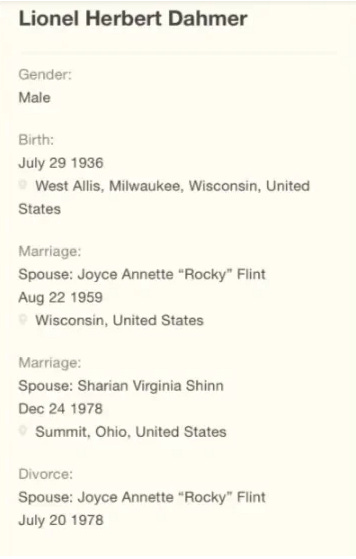
So when Steven Hicks died, Shari Dahmer was merely Lionel Dahmer’s girlfriend. At that time, she wasn't residing in the family home on Bath Road but was staying with Lionel at a nearby motel. Despite this, she is named as a defendant in the wrongful death lawsuit, accused of negligence and negligent entrustment related to Jeff's actions.
Why?
Judge Rules in Favor of the Hicks Family
Judge James R. Williams ruled in favor of the Hicks family, deeming Lionel Dahmer, Joyce Dahmer, and Shari Shinn Dahmer guilty of the allegations. How did the judge determine that Jeff's parents, along with Shari Shinn Dahmer, knew or should have known that Jeff was "deviant and destined to cause injury and death to others," as mentioned in the above news article?
Did Steven Hicks' parents know the true circumstances of what happened?
A $10 Million Judgment: Why Did Jeff's Parents Escape Liability?
An additional examination of the case record reveals that a judgment was granted against Jeff for $10,000,000. (Source: Summit County Court of Common Pleas, Ohio, under case number CV-1992-08-3291).
It is important to note that Judge James R. Williams presided over both the criminal and civil cases involving Steven Hicks (Source: Summit County Court of Common Pleas, Ohio, under cases number CV-1992-08-3291 and CR-1991-09-2090, Case Detail (summitoh.net).
The issue of whether Allstate Insurance settled the claim is separate. Insurance does not cover intentional acts, and although the case implies a deliberate act, there is no evidence to support this allegation.
Interestingly, despite being found guilty in the lawsuit, Lionel, Shari, and Joyce faced no additional judgments. The financial judgment for $10 million was granted against Jeff only.
Additionally, since Jeff was already 18 at the time of the Hicks incident, parental civil liability should have ceased. Yet, his parents and Shari were still accused and found guilty in their capacity as parents, for Jeff's actions.
What’s going on here?
Well, there is an exception to this rule. A parent may still be held liable for an adult child, and with no cap on the damages claimed, under the "Family Car" doctrine, as detailed in this excerpt from Parental Civil Liability - FindLaw:
Parental Civil Liability in Selected States:
Ohio: The state may find a parent liable for willful misconduct of their child that causes property damage, assaults another with force likely to cause great bodily harm, or results in theft from another. State law caps damages at $10,000 per act, plus court costs. A parent may be liable for knowing the misconduct of their child who commits vandalism, desecration, or ethnic intimidation. State law caps damages at $15,000 per act, plus attorney fees and court costs. A parent may be liable for negligent or willful misconduct of their child caused by a motor vehicle accident. State law does not cap damages under state law for motor vehicle accidents.
There is also parental liability through the Family Car Doctrine, which holds the owner of a family car legally responsible for any damage caused by a family member when driving, if the owner knew of—and consented to—the family member's use of the car. About half of the states apply this doctrine, known under the broader theory of negligent entrustment. Thus, even if a parent doesn't have a minor household member listed on the auto insurance policy, under the family car doctrine, the parent remains liable*.
The $10,000,000 judgment, which surpasses the typical cap except for motor vehicle accident cases, implies this judgment involves such a case.
Moreover, the lack of a judgment against the parents, despite their guilty verdict, implies that a plea agreement was made to avoid imprisonment and/or the obligation to pay a hefty and life-ruining financial compensation.
This agreement likely tackled two main concerns: concealing a death and negligent entrustment. The plea deal also involved participating in the bizarre “Milwaukee Cannibal” fake news story.
This online article is an example of the media coverage regarding the guilty verdict:
What Conclusions Can We Draw from This Story?
Steven Hicks died young and tragically. The narrative surrounding his death is riddled with inconsistencies and contradictions. This is clear from the varying accounts in the confession and the FBI vault. However, the truth should never change.
At the same time, the Dahmer family was experiencing significant turmoil. A divorce was in progress, coupled with a custody battle over Jeff's younger brother, David.
Lionel was living in a motel a few miles from the family home with his then-girlfriend Shari Shinn. The last thing Lionel and Joyce Dahmer needed was for their eldest son, Jeff, to be implicated in the accidental death of another young man. Such an event could lead to a civil wrongful death lawsuit, especially in the litigious climate of the US.

There was also a risk they might not succeed in proving the death was accidental. Joyce Dahmer was living at the family home when the incident happened and could have faced accusations of complicity. (Contrary to popular belief, Joyce did not leave the house until the end of August 1978. This means Jeff was not left alone, as the official narrative states.)
Jeff’s younger brother, David, was still a child, and his future was also at stake.
A Temptation Too Great
Given the family's home was in a remote, secluded area, the temptation to simply cover up Steven Hicks’ death and avoid all these complications might have seemed like an easy way out of this mess.
Years later, in the 1992 civil wrongful death lawsuit that emerged after Hicks' death came to light, Jeff and his parents were all found guilty. As noted above, Jeff Dahmer’s parents also faced additional charges of negligence, most notably, negligent entrustment.
How could all three adults be guilty of negligent entrustment?
What exactly did the judge find them guilty of entrusting Jeff Dahmer with negligently?
Was it a car?
How could they have all negligently entrusted Jeff with a car?
Or even a barbell?
Was Jeff negligently entrusted with his mother Joyce's car, and did this somehow contribute to Steven Hicks' accidental death?
It was widely reported that Jeff struggled with alcohol in his youth. If this is true, it could imply that he was driving negligently. Considering that Jeff was under Ohio's legal drinking age of 21 in 1978, his mother, Joyce, could be held even more accountable for allowing him to drive.
Our previous article on Jeff Six also discussed a scenario that involves three young male teenagers socializing—drinking, smoking marijuana, and lifting weights. They also have access to a motor vehicle. With no responsible adults around to supervise, anything can go wrong.
Recall the definition of negligent entrustment, which states:
''they negligently provided another party ("the entrustee") with a dangerous instrumentality, and the entrusted party caused injury to a third party with that instrumentality. The cause of action most frequently arises where one person allows another to drive their automobile.''
Shari Dahmer was also found guilty, likely due to her involvement as an accessory. Remember, Shari was not Jeff's parent at the time, so implicating her in the wrongful death lawsuit with claims of parental responsibility was misleading.
However, once she discovered the family secret, she became implicated. Could it be that Shari was blackmailed into being named in the lawsuit?




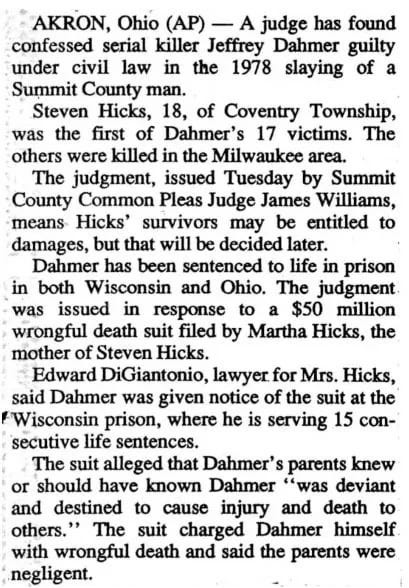
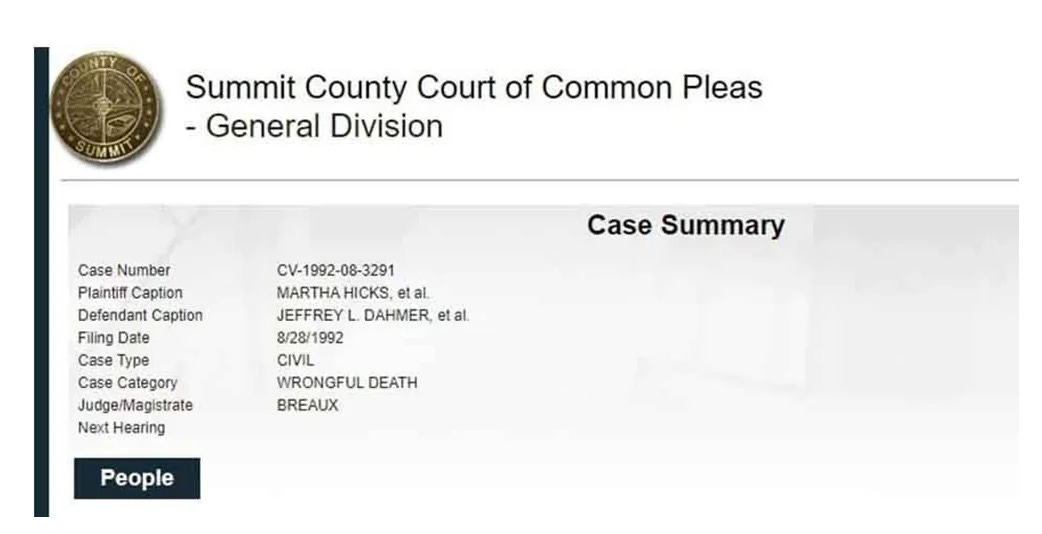
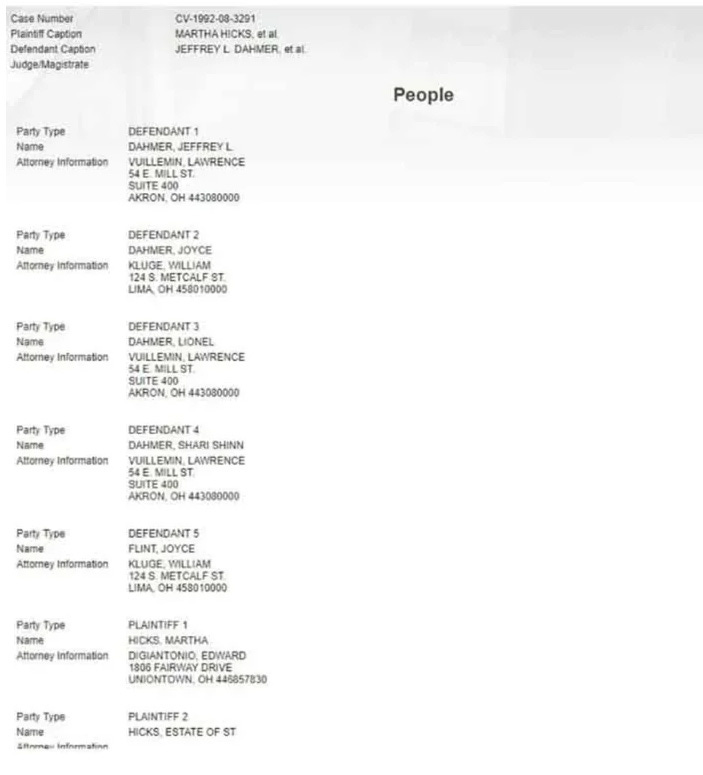



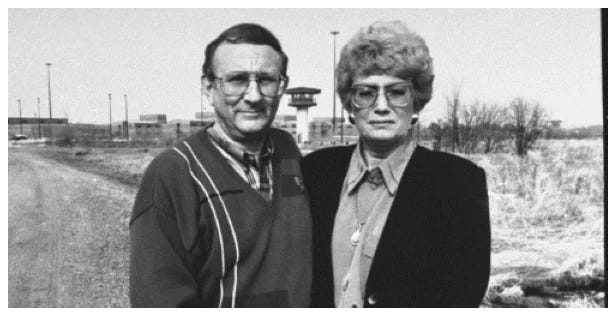
This is yet more damning evidence that points to a motor vehicle accident.
Almost nothing that was reported in the media remotely resembles what has been presented in this Substack.
The big question that I still have is WHY was there so much coverup and what actually happened. I really appreciate your due diligence in resolving this mysterious case.